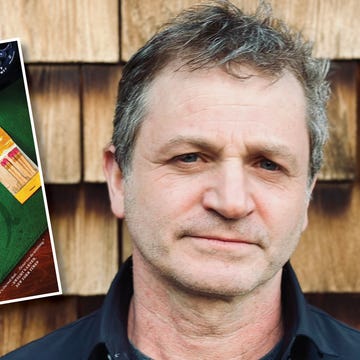Los Angeles is a city known for its iconic boulevards (Hollywood, Sunset, Wilshire), but for the city’s Black community, there is possibly no street more historic and revered than Crenshaw Boulevard. The connective fiber that weaves L.A.’s largest Black neighborhood together is the connective fiber of a new civic project titled Destination Crenshaw, slated to open in 2025. Amid fears of gentrification and of the erasures it could bring, Destination Crenshaw promises to repair, revitalize, and preserve the essence of the community through art, culture, and economic opportunities. Join Alta Journal contributor Lynell George for a conversation with Jason Foster, president and chief operating officer of Destination Crenshaw. The pair will dig into George’s Alta article “Crenshaw at the Crossroads”; discuss the past, present, and future of this iconic L.A. neighborhood; and take your questions.
About the guest:
Jason Foster is the president and chief operating officer of Destination Crenshaw. In this role, Foster oversees the administration and operations of the nonprofit, manages the organization’s finances and reporting, communicates with and supports the board of directors, and serves as the organization’s point of contact for public agencies, vendors, and key community partners.
Prior to Destination Crenshaw, Foster was the director of strategic partnerships at River LA. He was responsible for developing the philosophy and programming for River LA’s strategic partnerships. A native of Knoxville, Tennessee, Foster holds a bachelor of business administration–finance degree from Howard University in Washington, D.C., as well as a master of business administration degree from the Metropolitan College of New York.
About the moderator:
Lynell George is a Los Angeles–based journalist, essayist, and author. She has had a long career in L.A. journalism as a staff writer for both the Los Angeles Times and L.A. Weekly—focusing on social issues, human behavior, visual arts, music, and literature. Her work has appeared in Oxford American, Alta Journal, Sierra, the New York Times, and Smithsonian, among other publications. She is the author of No Crystal Stair: African Americans in the City of Angels (Verso/Doubleday), a collection of features and essays drawn from her reporting, and After/Image: Los Angeles Outside the Frame. She won a 2017 Grammy for her liner notes on Otis Redding Live at the Whisky A Go Go and is a 2020 recipient of a Distinguished Journalist Award from the Society of Professional Journalists/Los Angeles. Her latest book, A Handful of Earth, A Handful of Sky: The World of Octavia E. Butler, was a finalist for a Hugo Award. It was published in 2020 by Angel City Press.
Here are some notable quotes from today’s event:
- On the Crenshaw community: “We knew that in this community we have the chief export of L.A., and that’s Black creative capital. From our artists to our musicians to our chefs to our designers to activities that we create—it all centers in Crenshaw, in the Crenshaw district. The choice was to use culture and public art as a way to cement this community.”
- On Destination Crenshaw’s mission: “It is improvement around you, not through you. And I think a lot of times in our Black communities, it is through. We need people to come to an understanding of what improvement could mean if it wasn’t moving you physically, because that will hopefully make it easier for other things to happen. We have more Black ownership in Crenshaw because Destination Crenshaw happened; we have more people looking at our community for investment, whether that’s public or private. I would love to believe that the feeling that Destination Crenshaw gives around the community is hopefully being a champion to that and making it possible.”
- On cultural permanence for Crenshaw: “When we think about Harlem, we think about the Black people that have lived there in the past but also there today. Currently in Los Angeles, there are a lot of ethnic enclaves for a lot of different groups of folks, but not Black people. We knew intrinsically that this was the community for Black folks. There’s more Black people in the Crenshaw district in L.A. County than in the state of Mississippi. It’s amazing, and we know that, but the world doesn’t. And so this was an opportunity to create a space where we have six pocket parks and community spaces, some as big as 40,000 square feet, with four sculptures from artists, world-renowned artists but all grounded in the community.”
- On Destination Crenshaw’s name: “This is an outdoor, open-air museum where people taking that train will get off and say, ‘What is that there?’ They’ll be able to experience Crenshaw, the businesses that have made this community what it is and create a cultural destination for this community. Our name came from the late Nipsey Hussle saying, ‘This community needs to be a destination.’ I think that’s been the point of it all. To make this community what it is: first for us and then for the rest of the world to be able to participate.”
Check out these links to some of the topics brought up this week.
- Read George’s “Crenshaw at the Crossroads.”
- Learn more about Destination Crenshaw.
- Look at Destination Crenshaw’s vision.
- Read Destination Crenshaw’s guide to the Crenshaw Line.
- Donate to Destination Crenshaw.
- Grab a bite at Dulan’s on Crenshaw.
- Check out George’s A Handful of Earth, A Handful of Sky: The World of Octavia E. Butler.
- Learn about the movement to reclaim stolen Black-owned land in the Golden State through Diane R. Paylor’s “Poetic Injustice.”•











